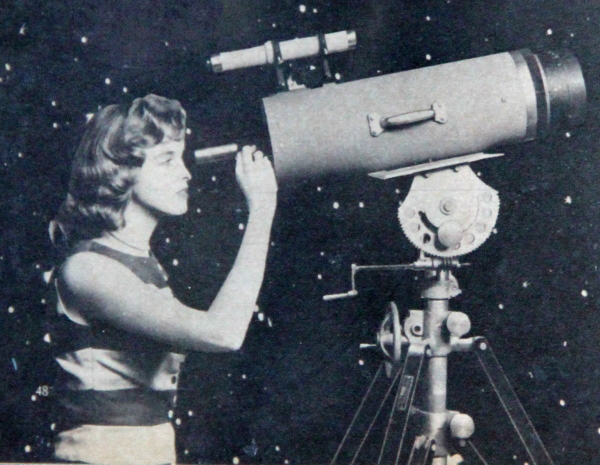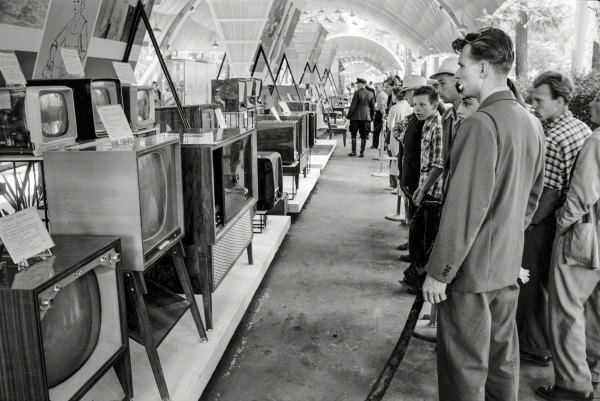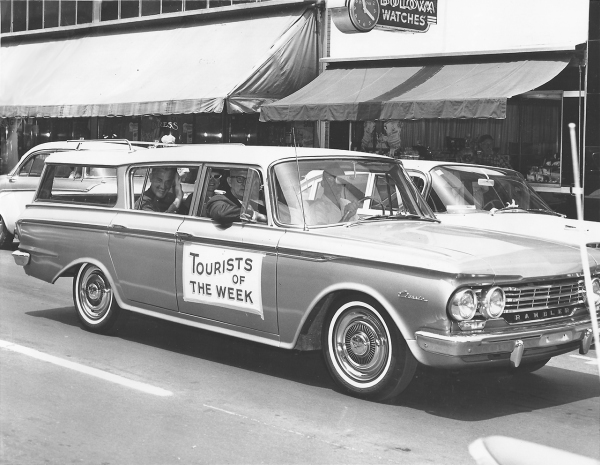
Science fiction is not prediction. It is extrapolation. No one can see the future, but a gifted writer can show you, dramatically, what will happen "if this goes on."
It's no surprise that science fiction writing has enjoyed a boom since 1950. Never has our world been on the brink of so many exciting and dangerous potentialities. On the positive side: space travel, automation by computers and robots, atomic energy. On the negative side: pollution, global warming, and atomic annihilation.
As a species, we stand on the edge of superabundance created by fewer and fewer people. It used to be that the vast majority of us made our living through subsistence farming. By the end of World War 2, the percentage of Americans employed in farming of all kinds was down to 14%, and since then, it has declined to about 8%. Over the next few decades, thanks to mechanization, the profession of farmer as we know it may cease to exist. We can expect the same trend to happen globally as the poorer parts of the world catch up.
What have we been doing now that we don't have to farm? Building things. By the end of the War, Blue-collar workers made up 40.7% of the labor force. As of 1959, they were down to 37%. This seems like a small dip, but the decline is consistent. Automation is getting cheaper every day, and it is pretty certain that the industrial sector will experience the same downturn as the agricultural sector.
Well, then, what is everyone else doing? White-collar workers, the professionals, the managers, the clerks, and those in sales, have grown in percentage of the work force from 35% in 1947 to around 42% last year. Moreover, service workers, both domestic and for-hire, have gone up from 10.4% to 12.2%. In other words, fewer people are using their hands and their backs to produce things. More are using their brains to produce…or entertain.
That's a snapshot at this place and time. What happens "if this goes on?"–when everyone has all the food and goods they need, what will people want? At what profession will people work? Will we all take turns serving each other at restaurants (until robo-waiters come into vogue)? Will we all write sonnets and paint pictures for each other in a sort of round-robin gift economy (until machines write songs and craft art better than we can)? Will we all become citizen-scientists, pioneering the limits of knowledge (before computers figure out ways to do it better and faster)? Or will we all ultimately end up loose-mouthed in a torpor watching endless robot-created television programs?

I just reread George Orwell's 1984, a tale of crushed free will in an ultra-totalitarian post-nuclear England. In his world, the people in power reason that the obstacle to their retention of power is superabundance. Once everyone has all they need, they reason, class distinctions disappear. Thus, the Party takes control and diverts all surplus production (and much besides) to the waging of a futile, endless war. Orwell essentially dodges the question–the road to plenty is nipped in the bud for the sake of a greedy few.
On the other side of the coin, we have Mack Reynolds' Russkies Go Home!, which appeared in this month's (November 1960) Fantasy and Science Fiction. Mr. Reynolds reportedly just returned from a trip behind the Iron Curtain, which explains the multitude of Russia-related stories he's recently turned out. Clearly, the trip impressed the writer, as the stories all posit a Soviet Union that fulfills Senator Kennedy's nightmare prophecies by surpassing the United States in prosperity by 1970.
Russkies takes place furthest along of all the stories, chronologically. While it is never explicitly stated, we can assume it is somewhere around 1990. The USA is suffering from chronic unemployment since no one will buy our products. This is because the USSR, forced by USA-led trade embargoes in the 50s and 60s, has become self-sufficient superproducer. Now they can dump exports on the world market at a fraction of the price of products made in the "Free World." And dump they do, not because they need imports from other countries, but to obtain foreign currency.
Because the tourism bug has hit big in the Soviet Union. No longer penned in by the secret police, and no longer eager to defect the abundance at home, the Communists now have a driving urge to see the world during their overlong work vacations (the Soviets, with their command economy, do not have unemployment, but they do have awfully short work weeks!)

from here
And so, Russian tourists swarm the world, spending freely, drinking heavily, and generally making raucous nuisances of themselves. This is the new hedonism. Meanwhile, the Americans want to regain customers for their trade products, but they can't so long as the Soviets are undercutting. The story's protagonist hits upon the idea of promulgating a religion of moderation, hoping that such will keep the Communists at home and allow the Americans some breathing room to restore trade connections. And perhaps address their juvenile delinquency problem; unemployed, unmoderated folks have lots of time on their hands to make trouble.
The funny thing is that it seems to work, this command economy religion (generated from scratch with an enormous outlay of government funds). And the Soviets, far from being upset by this development, ask if they can help–it seems they want to do something about the tens of millions of Chinese tourists they've been dealing with lately…
It's a silly story, and while the first half is rather excellent, the rest is barely an outline. Moreover, I think Reynolds' fundamental premise, that Communism will somehow surpass Capitalism, is flawed, though I did particularly like his observation that the "Free World" includes places like Spain, Formosa, and Saudi Arabia.
But that doesn't matter. The root of the story is our impending superabundance and the potentially devastating consequences for society. This is a subject I don't see addressed very often, in part because it's just so damned hard to guess what the world will look like after the labor sector transformation is complete. It is coming, though, and it's probably best we work out how we're going to deal with it sooner rather than later.
In short, what will we do when there's nothing we need to do?
